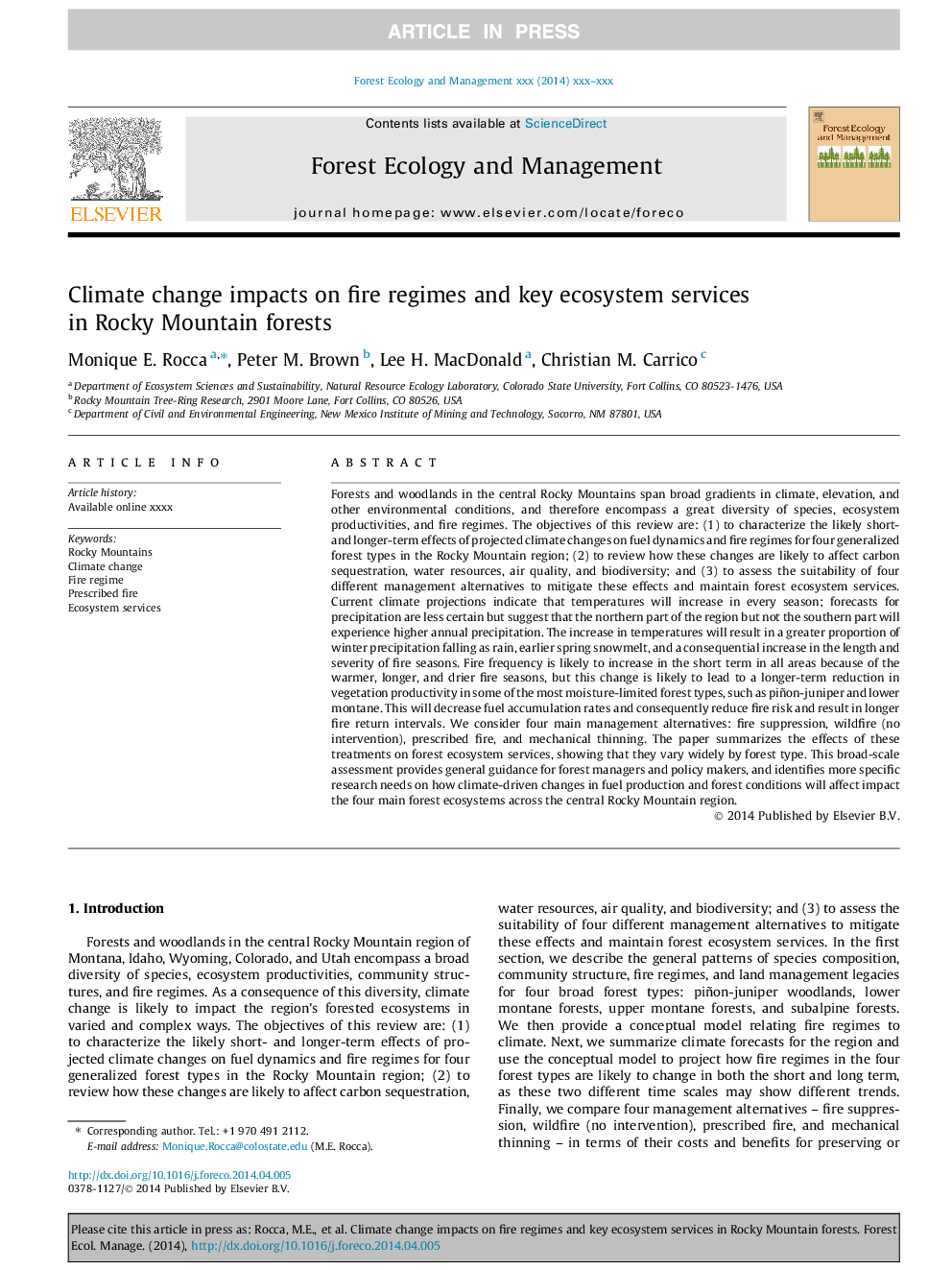| کد مقاله | کد نشریه | سال انتشار | مقاله انگلیسی | نسخه تمام متن |
|---|---|---|---|---|
| 6543441 | 159197 | 2014 | 16 صفحه PDF | دانلود رایگان |
عنوان انگلیسی مقاله ISI
Climate change impacts on fire regimes and key ecosystem services in Rocky Mountain forests
دانلود مقاله + سفارش ترجمه
دانلود مقاله ISI انگلیسی
رایگان برای ایرانیان
کلمات کلیدی
موضوعات مرتبط
علوم زیستی و بیوفناوری
علوم کشاورزی و بیولوژیک
بوم شناسی، تکامل، رفتار و سامانه شناسی
پیش نمایش صفحه اول مقاله

چکیده انگلیسی
Forests and woodlands in the central Rocky Mountains span broad gradients in climate, elevation, and other environmental conditions, and therefore encompass a great diversity of species, ecosystem productivities, and fire regimes. The objectives of this review are: (1) to characterize the likely short- and longer-term effects of projected climate changes on fuel dynamics and fire regimes for four generalized forest types in the Rocky Mountain region; (2) to review how these changes are likely to affect carbon sequestration, water resources, air quality, and biodiversity; and (3) to assess the suitability of four different management alternatives to mitigate these effects and maintain forest ecosystem services. Current climate projections indicate that temperatures will increase in every season; forecasts for precipitation are less certain but suggest that the northern part of the region but not the southern part will experience higher annual precipitation. The increase in temperatures will result in a greater proportion of winter precipitation falling as rain, earlier spring snowmelt, and a consequential increase in the length and severity of fire seasons. Fire frequency is likely to increase in the short term in all areas because of the warmer, longer, and drier fire seasons, but this change is likely to lead to a longer-term reduction in vegetation productivity in some of the most moisture-limited forest types, such as piñon-juniper and lower montane. This will decrease fuel accumulation rates and consequently reduce fire risk and result in longer fire return intervals. We consider four main management alternatives: fire suppression, wildfire (no intervention), prescribed fire, and mechanical thinning. The paper summarizes the effects of these treatments on forest ecosystem services, showing that they vary widely by forest type. This broad-scale assessment provides general guidance for forest managers and policy makers, and identifies more specific research needs on how climate-driven changes in fuel production and forest conditions will affect impact the four main forest ecosystems across the central Rocky Mountain region.
ناشر
Database: Elsevier - ScienceDirect (ساینس دایرکت)
Journal: Forest Ecology and Management - Volume 327, 1 September 2014, Pages 290-305
Journal: Forest Ecology and Management - Volume 327, 1 September 2014, Pages 290-305
نویسندگان
Monique E. Rocca, Peter M. Brown, Lee H. MacDonald, Christian M. Carrico,